Castilla y León Foodie Guide
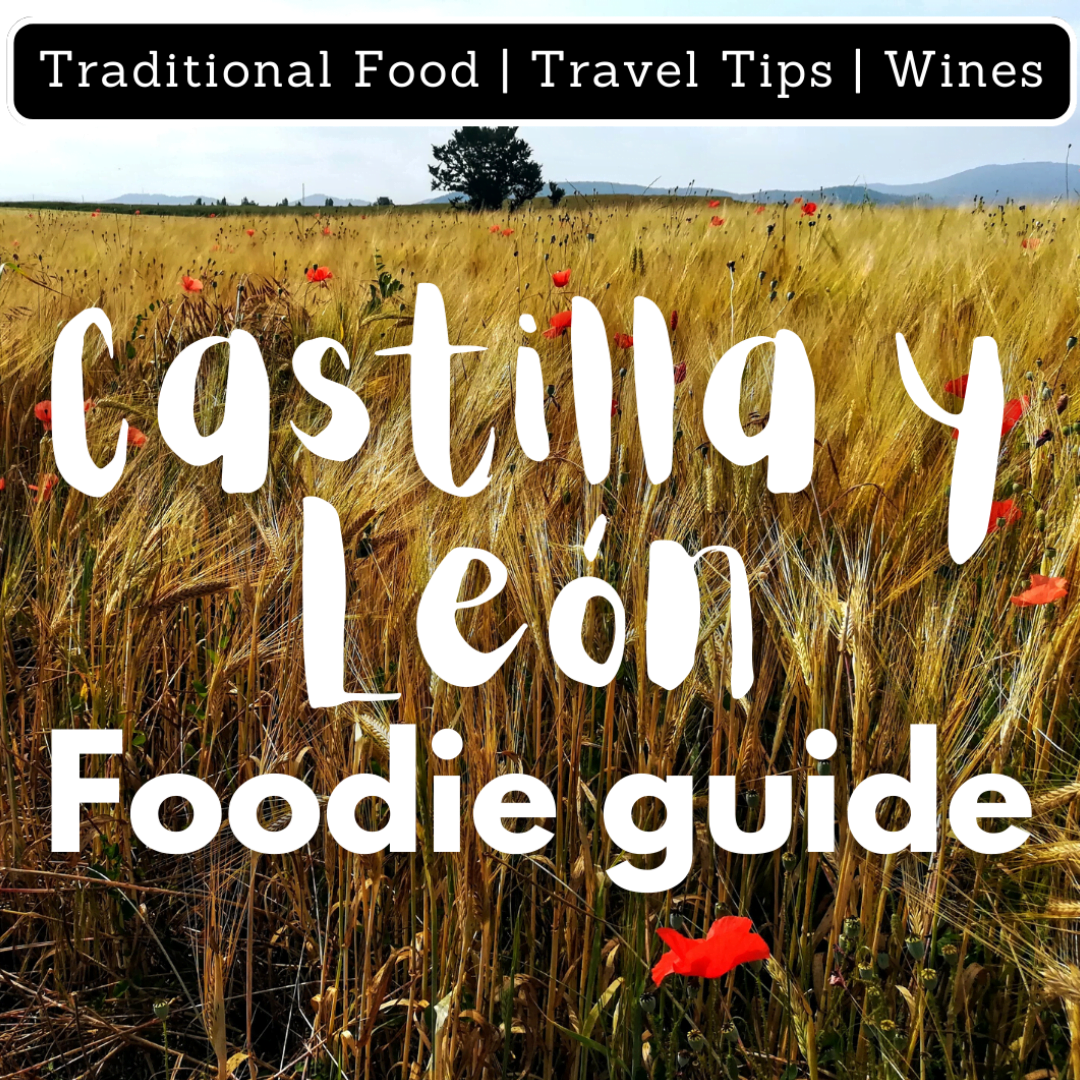
If you’re planning a trip to Spain, the largest of Spain’s autonomous regions is surely not to be missed! With an impressive selection of regional dishes, world-class produce, and incredible wines, there’s plenty to taste and explore!
Our Castilla y León regional foodie guide has everything to help you discover the wealth of local cuisine, delicious recipes, wine, and produce from the region.
An introduction to the Region of Castilla y León
The autonomous region of Castilla y León lies on the northwestern side of Spain, above the capital of Madrid, and below The Basque Country, Asturias, and Galicia.
Exploring Castilla y León’s diverse culinary history will take some time, mainly due to it being the largest autonomous region in Spain. Delve into the traditional recipes and produce of Castilian-Leonese cuisine, and you won’t be disappointed.
The region is also home to some of the most beautiful and historic cities in Spain, with notable mention of Salamanca, Segovia, Burgos, and Ávila. From Medieval walled cities to historically significant convents and castles, it’s not hard to see why Castilla y León is a destination not to be missed when visiting Spain.
Castilla y León Climate and terrain
The northern region is quite mountainous and has very cool winters where heavier meals are favored. Locals make warming soups such as Garlic soup, known as Castillian Garlic Soup (Sopa de Ajo). These hearty and warming dishes are always served with generous portions of locally baked bread called Castilla.
Expansive mountainous areas skirt the region’s north, west, east, and southern borders that connect Castilla y León with the Capital of Spain, Madrid.
The gathering of central plains of Castilla y León makes for fertile ground for many of the farming and agriculture activities, and the region is affectionately referred to as “Castilla, granary of Spain” with wheat, barley, and other cereals grown in abundance here.

Regional dishes from Castilla y León
Castilian-Leonese cuisine is a melting pot of its neighboring influences with many traditional guisos, which are similar to a hearty stew.
Castilla y León is most well known for its roast suckling pig and lamb dishes, which are most often cooked in huge wood-fired ovens.
Other notable regional dishes are Embutidos, a type of sausage, typically seasoned with a selection of aromatic herbs and spices including paprika, pepper, garlic, rosemary, thyme, and even ginger and nutmeg.
Traditional Recipes of Castilla y León
- Sopa De Ajo (Garlic Soup)
- Judiones de la Granja con Pimientos del Piquillo (Butter bean stew with peppers)
- Cordero Asado (Roast lamb)
- Lechazo – Roasted Suckling Lamb
- Cochinillo Asado – Roast Suckling Pig from Segovia, Arevalo and Penaranda de Bracamonte
- Torreznos – Traditionally a tapas dish of pork belly that’s marinated, dried, cut into strips, then fried in olive oil
- Hornazo – Stuffing bread with pork loin, hard-boiled eggs, and chorizo
- Olla podrida is a flavorsome Spanish stew made with beans, chickpeas, pork, sausages, bacon, lamb, duck, and vegetables such as onions, leeks, cabbage, carrots, and celery
- Morcilla de Burgos (Blood Sausage)
- Patatas a la importancia (from Palencia)
- Hornazo (from Salamanca)
- Perdices y codornices escabechadas (from Soria)

Wine from Castilla y León
With such close proximity to the wine regions of the Basque Country and Galicia, Castilla y León is also renowned for its high-quality wines.
There are nine appellations (Denominaciones de Origin or D.O.) of wine in Castile and León with 8 located within the Duero basin, inlcuding Arlanza, Arribes, Cigales, Ribera del Duero, Rueda, Tierra de Leon, Tierra del Vino de Zamora, and Toro. El Bierzo is the remaining DO located within the province of León.
Popular wines include:
- Cigales (Rose)
- Bierzo (Red)
- Ribera del Duero (Red)
- Rueda (White)
- Toro (Red)
The excellent wines of Castilla y León are often served alongside many cheese varieties made locally in the north. Other dairy products such as rich creamy desserts are also a favorite with the region’s locals, with desserts often made within mountainous villages that enjoy long, wet, and very cool winters.
Desserts of Castilla y León
- Mantecadas de Astorga – This sweet cake is made by whisking plain flour, eggs, butter, lard, and sugar, then baking the concoction in a square-shaped, kraft-type paper mold.
- Ponche Segoviano is a traditional Spanish cake originating from Segovia. This layer cake looks like a big rectangle of custard and marzipan that are topped with caramelized sugar and decorated with a criss-cross design.
- Leche frita is a delicious Spanish dessert consisting of a sweet, firm milk pudding encased in a crunchy fried shell of eggs and flour. It is made with flour, cornstarch, sugar, milk, eggs, butter, and olive oil. The whole concoction is flavored with cinnamon.
Drinks of Castilla y León
- Limonada de León – A Spanish cocktail made with red wine, citrus fruit, sugar, and spices
- Mencía Grape wine varieties
- Ribera del Duero is a Spanish appellation located in several provinces of Castilla and Leon, in north-central Spain


Learn the secrets of the Mediterranean Diet –
It’s no secret that the Mediterranean diet is healthy. It has been proven in numerous studies from all corners of the world, it aids weight loss, reduces the risk of heart disease and type 2 diabetes, as well as a growing list of other health benefits.
Find out what’s most exciting about the diet and create some incredibly tasty and simple Spanish recipes.
Looking for more travel inspiration?
Check out our other Regional foodie guides from all over Spain!
The Basque Country
Straddling part of the border between France and Spain, the Basque Country (País Vasco) has an incredibly diverse landscape that extends far beyond the renowned foodie capitals of larger cities such as San Sebastian and Bilbao. While the region is small, it has the highest concentration of Michelin-starred restaurants in the world per capita.
Galicia
Exploring the far northern Galicia region by food is like opening a foodie treasure trove. With a rugged coastline that divides two seas, undulating hills, and large fertile plains that benefit from the highest annual rainfall in Spain. Galicia is blessed with exceptional quality fresh produce, seafood, meat, and dairy products at every turn.
Galician cuisine is perhaps most famous for the stunning dessert, the Tarta de Santiago, but visitors to the region should take time to explore the many delicacies and dishes that are made in the region.
Madrid
They say that all roads lead to Madrid and a small stone slab lies discretely within Madrid’s Sol Plaza celebrating the geographic kilometer ZERO of Spain. But, it’s just a short stroll in any direction where you’ll find the rich aromas of authentic Spanish food wafting from the alleyways and narrow cobbled streets that are lined with Madrid’s famous tapas bars and prestigious restaurants.
Madrid is not only the geographic center of Spain but also the renowned melting pot where Spain’s culinary cultures merge. This is no more evident than in the enormous range of Spanish and international cuisine on offer throughout the capital, and with nearly 10,000 restaurants within the Madrid region, you’re spoilt for choice!
The Valencia Region
With its white-sand beaches and turquoise water of the Mediterranean Sea, the Valencia region harbors some of the best cuisine and fresh produce in Spain. Orange groves are dotted all the way up and down the region, and the rich fertile soil makes for ideal vineyards, producing excellent wines. It’s also one of only two UNESCO-listed locations for gastronomy and is home to many of Spain’s most renowned restaurants.
Catalonia / Cataluña
The Catalonia region is perhaps best known for its thriving capital, Barcelona, but a close second when you mention Catalonia is the food. The region offers a wealth of authentic Spanish cuisine that has resonated all around the world.
With its borders spanning from the Mediterranean Sea in the east, to the stunning rugged grazing plains of Aragón, to the picturesque mountainous zones of the Pyrenees mountain ranges, the Catalonia region has it all!
The Spanish Radish Blog
Spanish Chicken Thighs with Roasted Peppers and Olives
Spanish Chicken Thighs with Roasted Peppers and Olives An Easy-To-Make, Flavor-Packed Classic That Brings Spain to Your Table A mouthwatering recipe for those busy weeknight dinners: Spanish Chicken Thighs with Roasted Peppers...
Spanish Chicken in Creamy Mustard Sauce – Pollo a la Mostaza
Spanish Chicken in Creamy Mustard Sauce - Pollo a la Mostaza An Easy, Flavor-Packed Classic That Brings Spain to Your Table When it comes to rustic, comforting Spanish cuisine, Pollo a la Mostaza — chicken in creamy mustard...
Tomato, Ham, and Onion salad – Ensalada de tomate con jamón
Tomato, Ham, and Onion Salad - Ensalada de tomate con jamón We Are Bringing Back another timeless Classic salad Recipe This Summer - Ensalada de Tomate con Jamón 🇪🇸 🍅 Bright, bold, and bursting with Mediterranean flavor,...
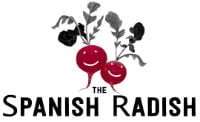
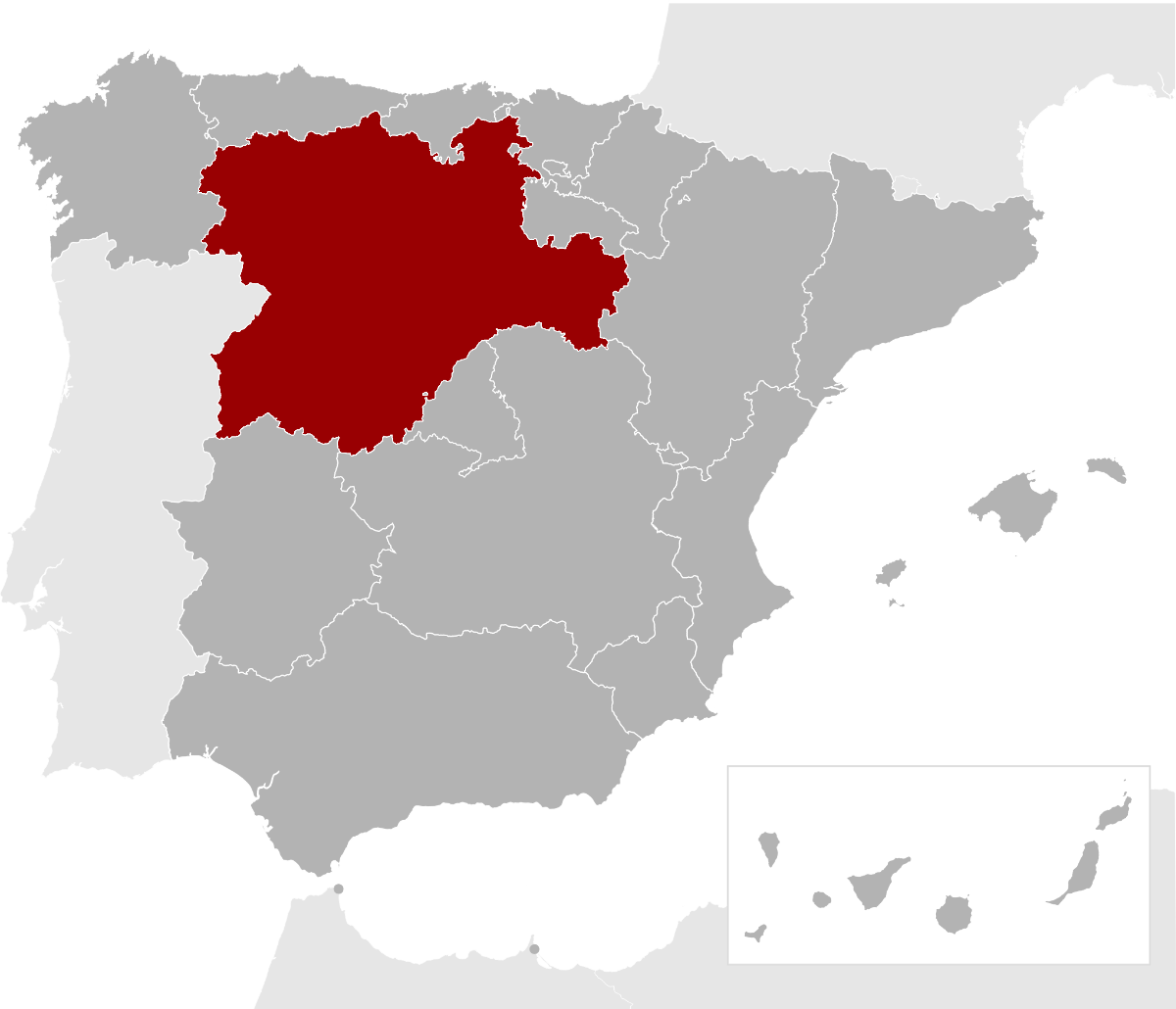
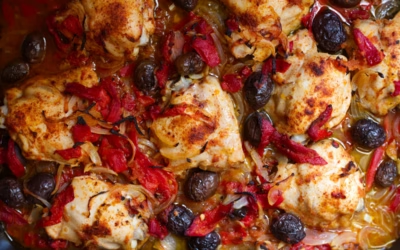
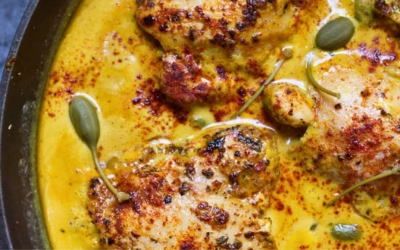
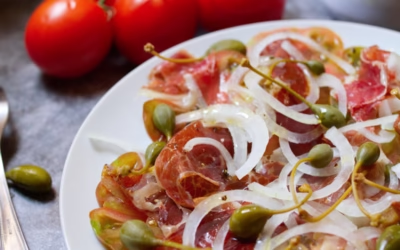
0 Comments